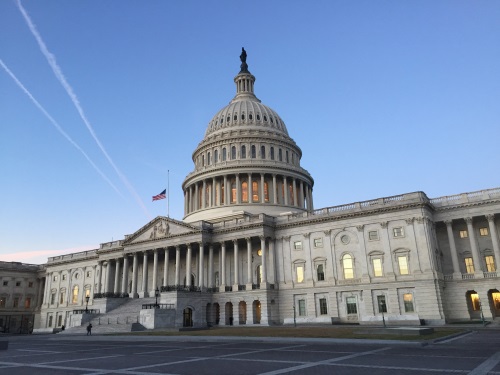The Senate Appropriations Committee on September 19 approved $86.6 billion in fiscal year 2020 funding for the U.S. Department of Transportation, which is $167 million above the FY 2019 enacted level, by a vote of 31-0.
That closely matches the “minibus” package passed by the House of Representatives in June.

“This legislation prioritizes funding for infrastructure that will improve our nation’s transportation systems and housing programs, enhancing job creation and economic development across the country,” said Senate Appropriations Committee Chairman Richard Shelby, R-Ala., in a statement.
The total funding for DOT includes $25.3 billion in discretionary appropriations and $61.3 billion in obligation limitations that fully honors Fixing America’s Surface Transportation or FAST Act funding levels from the Highway Trust Fund, noted Sen. Susan Collins, R-Maine, chairman of the Transportation, Housing and Urban Development, and Related Agencies or THUD Appropriations Subcommittee.

“This legislation will support job creation and economic development, allow us to make critical improvements to our infrastructure, provide housing assistance for low-income seniors and other vulnerable populations, and enhance oversight of the FAA’s aviation safety and aircraft certification programs,” she said in a statement on September 17.
The Senate deliberately delayed work on its funding measures earlier this year to await the results of broad bipartisan budget agreement between the White House and Congress concerning overall spending caps for next two fiscal years – a deal eventually finalized in July.

The next step in the funding process is to reconcile the Senate and House appropriation measures – a process with relatively minor impact in the House but of major import in the Senate. In contrast to most other legislation, senators cannot use the filibuster to indefinitely prevent consideration of a reconciliation bill, because Senate debate over reconciliation bills is limited to twenty hours.
Thus, reconciliation bills only require the support of a simple majority of the Senate for passage, rather than the 60-vote super-majority required to invoke cloture and defeat a filibuster.
Key transportation components of the Senate subcommittee’s proposed THUD spending legislation include:
- $46.3 billion in for the Federal-aid Highways Program, with the money coming from the Highway Trust Fund.
- $2.7 billion in discretionary appropriations for highway programs, of which $1.25 billion is for the Surface Transportation Block Grant funds and for the elimination of hazards at railway-highway grade crossings, and $1.25 billion is for bridge repairs in small states with high rates of bridges not in good condition.
- $13 billion for the Federal Transit Administration, with transit formula grants getting a total $10.1 billion from the Mass Transit Account of the Highway Trust Fund
- An additional $560 million is provided from the general fund for transit infrastructure grants, with the bill also providing a total of $1.978 billion for Capital Investment Grants, as well as full funding for all current Full Funding Grant Agreement transit projects, which includes new projects that have met the criteria of the CIG program.
- $1 billion in funds for the Better Utilizing Investments to Leverage Development or BUILD discretionary grant program.
- $100 million for the Appalachian Development Highway System and $100 million for the Nationally Significant Federal Lands and Tribal Projects grant program.
- $2.8 billion for the Federal Railroad Administration, which includes $2 billion to Amtrak for the Northeast Corridor and National Network, continuing service for all current routes.
- $255 million for the FRA’s Consolidated Rail Infrastructure and Safety Improvement grants program, $300 million for Federal-State Partnership for State of Good Repair grants, and $2 million for Restoration and Enhancement grants.
- $17.7 billion in total budgetary resources for the Federal Aviation Administration.
- $904 million for the Maritime Administration.
- $972 million in total budgetary resources for the National Highway Traffic Safety Administration and $679 million for the Federal Motor Carrier Safety Administration.
- $278 million for the Pipeline and Hazardous Materials Safety Administration to help address safety concerns related to recent pipeline and crude oil by rail accidents.
 Top Stories
Top Stories


